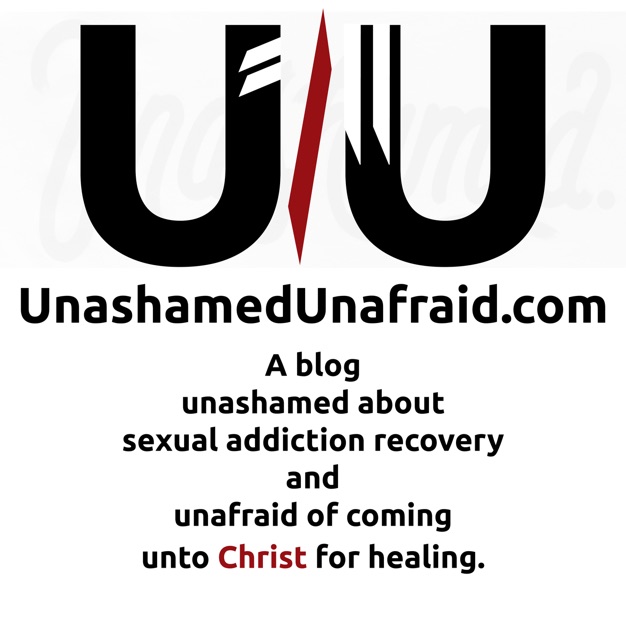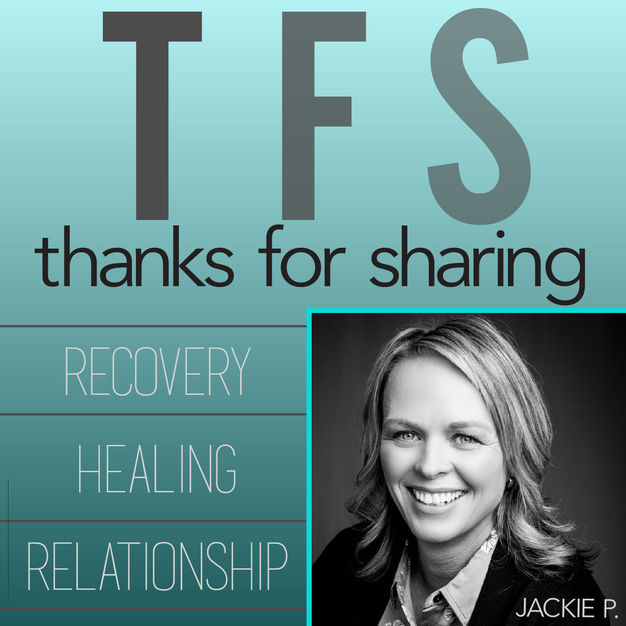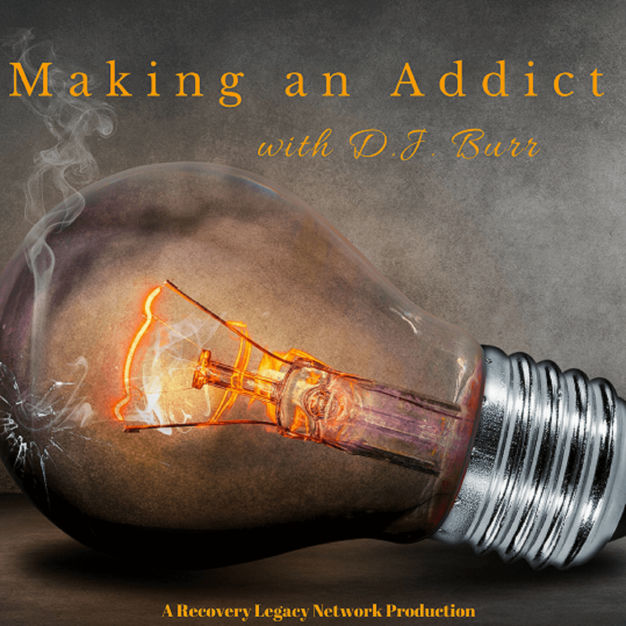
Worth Recovery
Recovering Amy
I'm Amy, a recovering sex addict. This podcast, Worth Recovery, is my way of giving back and adding a woman's voice to sex addiction. I share my own recovery experiences and thoughts as I continue to keep myself on the road of recovery.
- 23 minutes 56 secondsEpisode 189: Recovery Toolbox: Living in your time zone
Hey, friends! Welcome back to another episode of the Worth Recovery Podcast. I’m Amy, your host, and I’m a sex/love/relationship addict. I’ve been sober since December 2nd, 2012, and I’m excited to share a tool with you today.
Building Your Recovery Toolbox
In recovery, having a toolbox filled with various tools is essential, especially when dealing with relationships, love, and sex. We need a variety of tools for different reasons. Some are preventative, helping us stay in a good mental space, while others help us regulate ourselves when we're feeling activated. Sometimes, we use tools to bring ourselves back to the present and feel grounded.
Our toolboxes are unique to us because what works for me might not work for you. For instance, I love writing and music, while others might prefer different methods. Today, I want to introduce a tool that has been incredibly helpful for me when I feel anxious—something I call the Time Zone Activity.
When I get anxious, I feel locked up, like the gears in my brain stop working. The goal of this activity is to help me become present, let go of what I can't control, and find flexibility and action in my thinking. Anxiety often makes our thoughts rigid, limiting our perceived options. This activity helps me see that there are always more choices available.
How to Use the Time Zone Activity
You can do this activity with me right now, even if you’re not feeling anxious, because practicing when we’re calm helps us build new neural pathways. Grab a piece of paper and divide it into three columns: Past Time Zone, Current Time Zone, and Future Time Zone. Write down your current time at the top of the middle column and add the phrase, “Be where your feet are.”
Now, think about what’s causing your anxiety and sort these thoughts into the appropriate time zones. It’s common for most of our anxieties to be tied to past or future concerns. Once you have everything listed, the next step is to determine what actions you can take in the present to address these concerns.
Look at your past time zone list and identify what you need to forgive, let go, or take action on in the current time zone. Similarly, examine the future time zone list and consider what steps you can take now to help alleviate these future anxieties.
Once you have a list of actionable items, choose a few things you can do right now to help you stay grounded and move forward. My goal is to complete at least five things, which helps me feel calm and flexible. Sometimes it takes an hour, but I realized that time would pass anyway, whether I spent it worrying or taking action.
Remember, not every tool works for everyone, but trying different ones can help you build a toolbox that suits you. I hope you find this Time Zone Activity helpful. If you give it a try or adapt it, I’d love to hear about your experience. You can email me at [email protected] or leave a comment on the episode.
For additional resources, you can check out this article on grounding techniques that might also be helpful in managing anxiety.
Lastly, always remember that no matter where you are on your recovery journey, you are worth it. You’re worth the effort, time, and work. I believe in you, and until you believe it yourself, you can rely on my belief in you. I think about you, I pray for you, and I love you.
Live in your time zone today.
Until next time,
Amy2 August 2024, 1:36 am - 19 minutes 42 secondsEpisode 188: Dialing It InDiscovering Your Personal Mixing Board
Hey, friends! In this episode of The Worth Recovery Podcast, we're diving into a fun and helpful analogy for personal growth and recovery: the mixing board. Growing up in a musical family, I learned all about how mixing boards can blend different sounds to create just the right balance. Now, I’m using this idea to help us think about our own lives.
Imagine you have your own mixing board, with dials representing your beliefs, behaviors, and emotions. Some dials might be for traits like compassion or confidence, while others might control beliefs like "I can't trust anyone" or "I'm not enough." By figuring out which dials are cranked up too high or turned down too low, we can start dialing in our lives to reduce distortion and create the balance we need for successful recovery.
Small Tweaks, Big ImpactThe key to "dialing it in" is understanding that even small tweaks can lead to big changes. Think about three areas in your life where the dials might be off. Are there beliefs that hold you back or behaviors that need a little adjusting? By recognizing these areas, we can make thoughtful changes that help us find more harmony in our lives.
I'll share my own experiences with dialing in my settings, like rethinking my packed schedule to prevent burnout or challenging the belief that relationships are liabilities. Remember, these traits aren't flaws—they're parts of us that can work beautifully when calibrated correctly.
Throughout the episode, I reference insights from Alfred Adler, Gabor Maté, and Bessel van der Kolk, who all explore how our experiences shape our personalities and coping styles. Understanding these influences helps us navigate our paths to recovery and self-growth. If you're interested in diving deeper, I recommend checking out The Myth of Normal by Gabor Maté.
Let's get together and start making those small adjustments to dial in the life we want. I’m so excited for you to join me on this journey!
29 July 2024, 3:46 pm - 37 minutes 32 secondsEpisode 187: Trauma Responses
Welcome back, friends, to another episode of the Worth Recovery Podcast. I’m Amy, and today I’m sharing an episode I recorded two years ago about trauma responses. This episode is deeply personal, as it includes memories from my own childhood trauma. I’m sharing these experiences not to compare my trauma to anyone else’s but to help us all better understand how our pasts can impact our behaviors and lives, often without us realizing it.
Many of us enter recovery without fully understanding our histories or how they’ve shaped us. We might think we had a great childhood or struggle to remember parts of it at all. As I recount my experiences, I hope to offer insights into how trauma memories can resurface, sometimes many years into sobriety, as they did for me.
In this episode, I discuss a traumatic experience from my childhood that I’ve struggled to remember clearly. Through therapy, I’ve come to understand that different types of memory exist, including emotional and bodily memories, which can resurface unexpectedly. My journey has shown me that the process of uncovering and healing from trauma can be slow and nonlinear. It took me ten years of sobriety to begin to understand some of my own trauma.
I also talk about how our bodies can react to trauma in ways we might not expect. A routine dental visit unexpectedly triggered a traumatic memory for me, revealing a past assault I hadn’t fully understood. This experience emphasized the importance of having a supportive network and allowing ourselves time to heal and understand our trauma.
Finally, I remind listeners that it’s okay to take your time when sharing your own experiences. Vulnerability can be daunting, but sharing when you feel ready can be empowering and healing. I hope this episode helps you in your journey to understanding your own life and experiences.
26 July 2024, 1:27 pm - 28 minutes 37 secondsEpisode 186: 11 Years Sober
In this episode of The Worth Recovery Podcast, I'm celebrating 11 years of sobriety since December 2, 2012. Reflecting on this milestone, I explore how crucial self-worth is in the recovery process. This episode, recorded six months ago, delves into my thoughts and experiences during my 11th year of sobriety, offering insights I've gained along the way.
Over the years, I’ve worked with many clients, witnessing how love and relationship addictions manifest uniquely for each person. Despite the differences, the core symptoms are often strikingly similar. I plan to dive deeper into these observations in future episodes, so stay tuned!
One key takeaway from my journey is that you cannot shame yourself into meaningful change; you can only love yourself into it. In 2011, I chose bottom and decided it was time to seek help. Finding a therapist and joining a 12-step group were pivotal steps for me. These experiences taught me three invaluable lessons: I was not alone, people understood and believed me, and shame was more of a hindrance than a help.
A significant turning point was when I realized that shame was blocking me from accepting positive feedback and love. My therapist’s analogy of having a bucket in my heart without a bottom really hit home. It made me see that self-worth and self-love were essential for holding onto the good in my life.
I began focusing on building my self-worth, understanding that I was worthy of recovery, love, and happiness. This shift allowed me to show up differently in my life, embracing my value and the positive changes that came my way.
One book that played a significant role in my journey was Brené Brown’s "I Thought It Was Just Me (But It Isn’t)." Brown’s message that everyone is worthy of love and belonging right now, without any prerequisites, profoundly impacted my recovery.
Today, I want to encourage you to recognize your inherent worth. Understand that you are not alone in your struggles. Recovery is possible, and embracing your self-worth is a vital step in that journey. Remember, you are Worth Recovery.
Thanks for tuning in, and I look forward to sharing more with you in the next episode. Until then, take care and keep believing in your worth!
Amy
16 July 2024, 2:24 pm - 33 minutes 24 secondsEpisode 185: Engage - Discipline
What role does Discipline play in your recovery? Do you need more discipline in order to get where you want to be?
In this episode, Amy discusses the three types of discipline needed for recovery - Preventative, Supportive, and Corrective. She offers tools and help for each type for your to implement in your personal recovery.
9 July 2024, 4:50 pm - 20 minutes 45 secondsEpisode 184: Engage
Are you engaging in your recovery?
Every year I pick a word for the year that encapsulates my intentions for the next 12 months. This year, the word is Engage. Listen to how and why I chose the word, what it means to me, and what you can do to engage in your recovery on a deeper level!
18 February 2024, 9:37 pm - 32 minutes 33 secondsEpisode 183: Holding Space
The longer I've been a coach and therapist, the more I realize recovery has a whole vocabulary all it's own! I use words people have never heard or analogies most have never heard of. So many times people ask me to define certain ideas, concepts, or words and want to know how it might work.
In today's episode, I define the concept of "Holding Space" and discuss why we need it, how we do it, and what gets in the way. Have you ever considered if you can hold space for yourself or what that would look like? Do you know the breakdown of what happens when we hold space for others or they hold space for us? What gets in the way of this happening for you? By the end of the episode you'll know all the answers and more!
17 August 2023, 8:58 pm - 22 minutes 11 secondsEpisode 182: Begin Again
Over and over, we begin again.
I believe the practice of beginning again is one of the single most significant gifts you can give yourself. This is the work of recovery. After several months of no new episodes and a few years of false starts and on and off again engagement, I begin again. Isn't that what we all do? We re-engage. We start over. We begin anew. Hopefully you'll have the courage to do the same in whatever area you need to in your life.
And hopefully you'll allow me to do that same.
All my love!
Amy
2 August 2023, 2:30 pm - 30 minutes 51 secondsEpisode 181: Can’t vs. Won’t
Do you feel stuck? Sometimes, during my 10 year sobriety journey, I have felt very stuck and very upset about being stuck. In this episode, I talk about how sometimes we keep ourselves stuck. Not all the time, but sometimes we are our worst enemy in what we are willing to do for our own recovery. You're not stuck because you can't, you're stuck because you won't.
7 December 2022, 2:00 pm - 32 minutes 26 secondsEpisode 180: Believing is Seeing - 10 Years Sober
Today, December 2, 2022, I celebrate 10 years sober. In this episode I talk about some of the thinking that had to change for me to achieve this accomplishment and how believing is seeing when it comes to our recovery.
2 December 2022, 6:44 pm - 43 minutes 40 secondsEpisode 179: Worth Reading - The Four Agreements
Continuing our Worth Reading series, I share one of the books that was fundamental to my mindset work. I was struggling with my people pleasing behaviors when my therapist recommended this book. In this episode, I share the pieces of this book that had the most influence on me.
The Four Agreements by Don Miguel Ruiz
23 February 2022, 2:30 pm - More Episodes? Get the App
Your feedback is valuable to us. Should you encounter any bugs, glitches, lack of functionality or other problems, please email us on [email protected] or join Moon.FM Telegram Group where you can talk directly to the dev team who are happy to answer any queries.
 Unashamed Unafraid
Unashamed Unafraid
 Thanks for Sharing
Thanks for Sharing
 Making An Addict
Making An Addict
 Betrayal Recovery Radio
Betrayal Recovery Radio
 Behind Closed Doors
Behind Closed Doors
 Mirror of Intimacy
Mirror of Intimacy